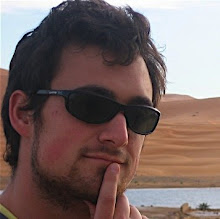From Santiago I traveled by night bus to Puerto Varas (13 hours) and was greeted by gray skies and a steady drizzle. Thankfully I had heeded the advice of my friends in Santiago--most were aghast that I was traveling South at the front end of a notoriously wet time of year-- and beefed up my gear to include waterproof coverings for my backpack and me.
This part of the world reminds me of Siberia. Colorful wooden houses, weather that changes from gray to bright blue in an instant, and people whose existence in a relatively remote place has blessed them with the peculiar combination of warmth and gritty toughness. Puerto Varas has beautiful views of lakes and towering snow-capped volcanos, none of which I really saw given the weather. I did have a TV there and was amazed and happy to find the Final Four games being broadcast. Puerto Montt, where I have spent the past several nights, is 20 minutes away and is a grittier, more industrial sea port.
I hoofed it down South from Santiago in order to meet up with Thomas, the Dutchman whose land I am going to live on for the next several weeks. I then left more-charming Puerto Varas for Puerto Montt, also to meet Thomas, who again arrived a day after originally planned. Puerto Montt is crummy enough that all guidebooks suggest skipping it entirely. Nevertheless, our next bus departs from here and I had to meet Thomas. It has not been all bad, though, as Puerto Montt is a bit cheaper than Puerto Varas. Also, I have had a chance to slowly observe life in Southern Chile, prepare more thoroughly for my trip into the wild, and experience a new type of accomodation: hospedajes.
Hospedajes are local homes converted, partially, into guesthouses. The family lives in the house and rents out rooms, going about daily life as usual. There is usually a "senora" or "duena de casa" that acts as manager, receptionist, cook, and all-around house mother--I have only been in a few, but have yet to see one run by a man. To my delight I have found that common practice is to charge per person, regardless of the number of occupants. Consequently, as a single traveler, I can get my own room with two beds and only pay for one bed--generally between $7-$10 per night around here. Some have TVs, almost all offer shared bathrooms. If you want a hot shower, you have to turn on the water heater or ask to have it turned on. The guests are a diverse bunch--some are travelers like me, some are Chileans passing through, and some are students or workers living for extended periods of time. The extended stayers are on the basis of "pension," meaning they pay per month for lodging and meals. I use the kitchens and there have been able to chat and interact with the family. At my current lodging, in Puerto Montt, I have been fortunate enough to share some wonderful meals with Dona Leticia and her daughter Karina. I have cooked a few things to share with them in return, and today had a wood chopping lesson with the great-uncle of the family so that I could contribute to the wood pile for the stove.
In other big news, I finally met the Dutchman, Thomas. Long hair and long beard, he looks like Rob Zombie, but not nearly as menacing. He is incredibly interesting and I have only begun to scratch the surface in terms of getting to know him. He bought land in Patagonia 15 years ago and has been spending several months per year here ever since. He and I have been spending the past couple days provisioning for the trip, as his place is far removed from any developed town. We have to stock up on food, tools, and various odds and ends. For example, he walked into a hardware store and ordered 36 square meters of plastic for a greenhouse and hundreds of feet of nylon cord. In another, liters of caustic acid for making soap from fat, hooks for fishing, and replacement cleats for his catamaran. Foodstuffs include kilos of flour, oats, rice, beans, sugar, and butter--a complete list would be exhausting, but we are bringing a lot. Fish, mussels, and crabs are plentiful at Thomas' land, and he has a greenhouse with some vegetables, but it sounds like at this point a large amount of his food is provisioned ahead of time.
Our journey on Saturday will begin with a six hour bus to the town of Quellon, on the Southern tip of the island of Chiloe. From there we will board an overnight ferry to tiny Puerto Raul Marin, and from there we will hop on with a local fisherman to Thomas' estuary. My plans for the next several months will depend very much on the nature of this upcoming challenge. As such, I am thrilled that I will soon get to see this place for myself.




No comments:
Post a Comment